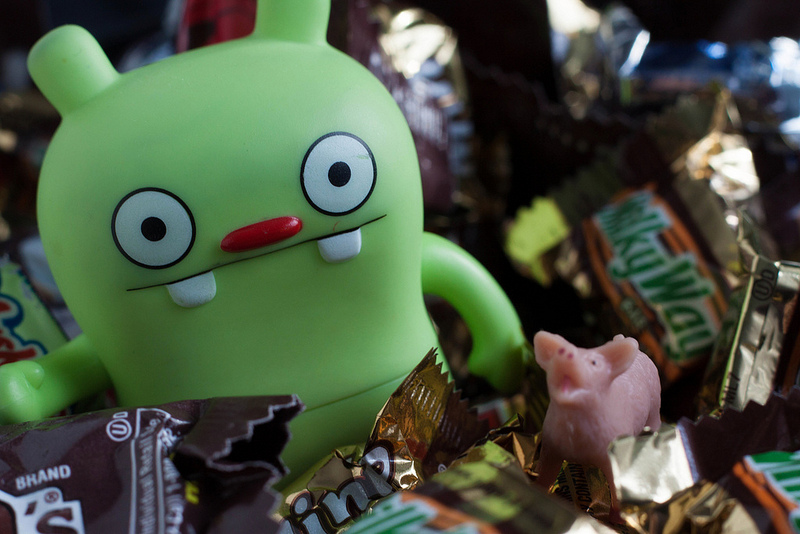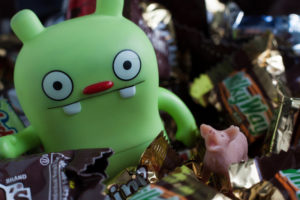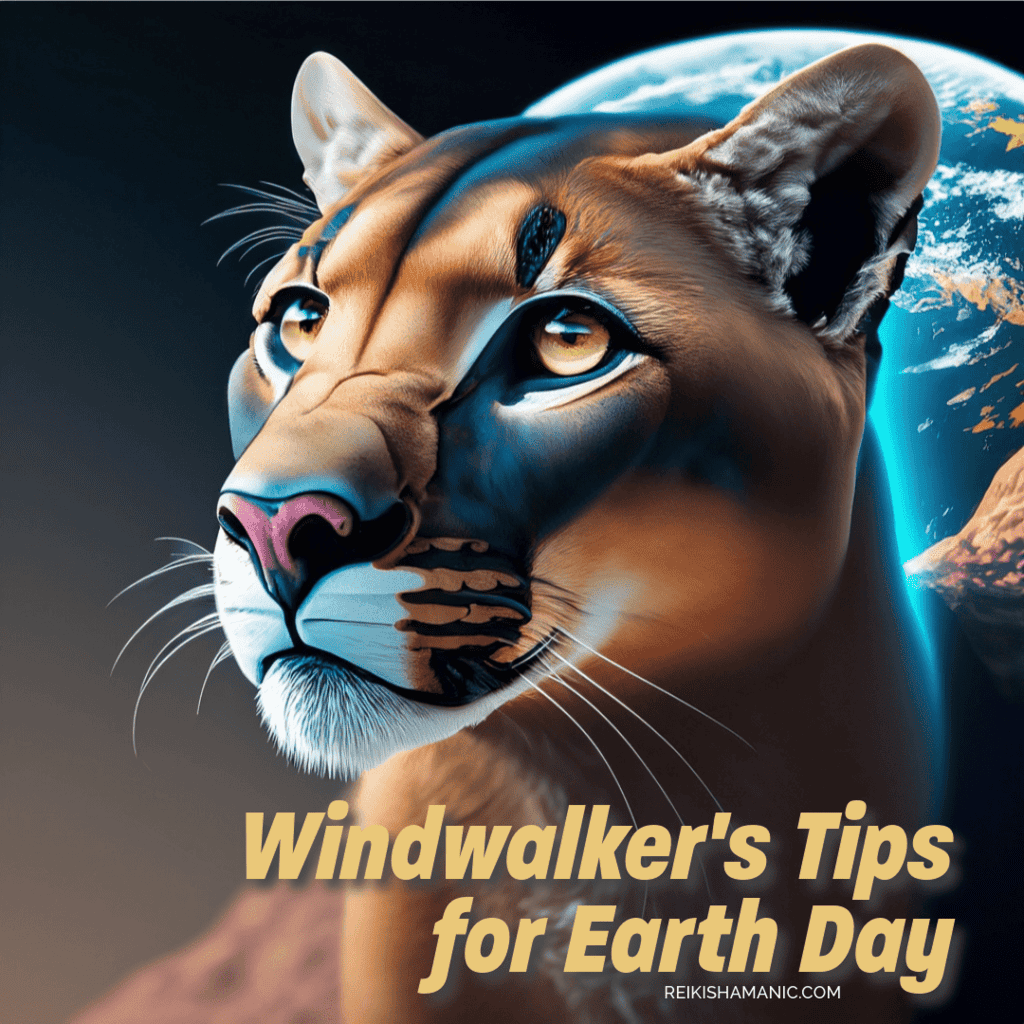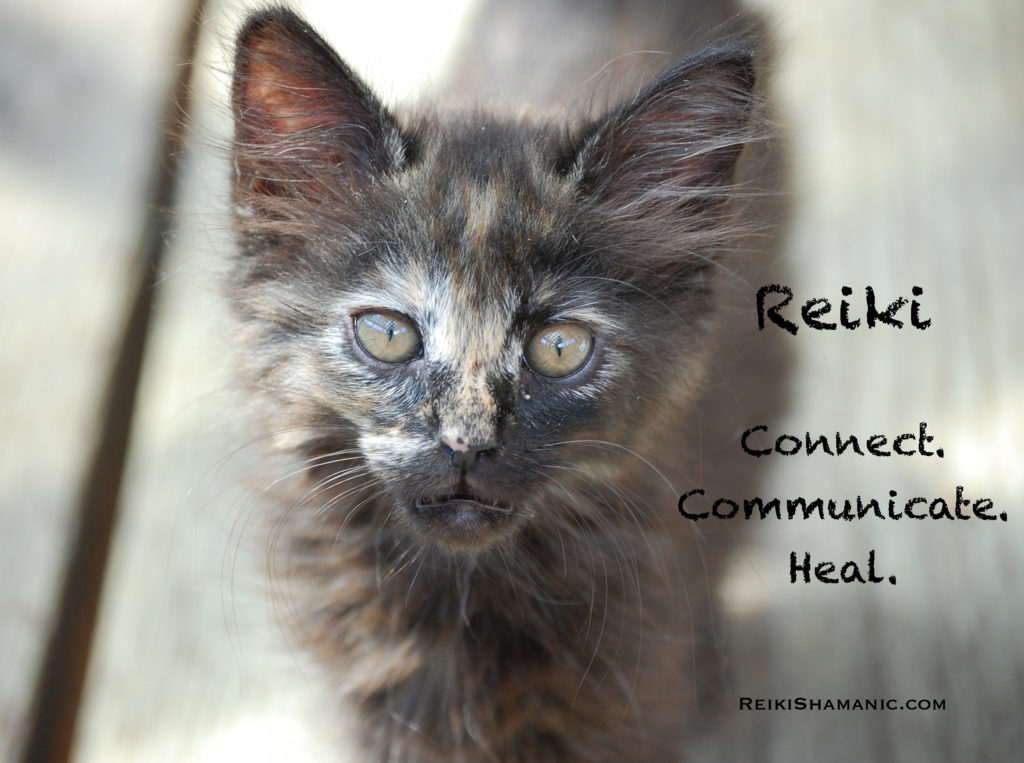
Is there a goblin hiding in your Halloween candy?

Gremlin in Halloween candy, Photo: CC image courtesy of Nomadic Lass on Flickr
by Guest Blogger Debbie Noyes
A recent trip down the candy aisle at my local market reminded me that Halloween is rapidly approaching. Since downloading my newly discovered Buycott app which helps me choose companies that support eco-friendly practices, I decided to scan some of the candies for palm oil. I recently became aware through the Rainforest Action Network that most snack foods contain palm oil which is usually imported from Indonesia and Malaysia.
The palm oil industry has contributed to heavy deforestation in these places, forest habitat which is important for orangutans, elephants and tigers among other species. The United States is one of the leading consumers of palm oil which is found in many of the most popular brands on our shelves. Some palm oil growers have switched to a more sustainable form of palm oil. Many US companies have changed their ingredients to use a sustainable palm oil or eliminate it all together. Yet there are many large companies that have not.
The results of my informal survey were discouraging. Sadly there are not nearly as many choices without palm oil as there should be, so I did a web search to see if there was a list. I did find several, however many of those choices contained genetically modified ingredients (GMO’s) which I would prefer to avoid.
So what’s a hungry trick-or-treater to do?
My advice would be to first focus on brands that are Certified Organic. Be sure it says Certified Organic and not just “natural” or “organic.” Only Certified Organic products are guaranteed to be free of GMO’s. Then I use my app Buycott to read the bar code to avoid ingredients that contain palm oil, vegetable oil (which is usually palm oil) or one of the many other synonyms for palm oil.
Brands that I have found to be free of palm oil are Truffle Pig, OCHO chocolates, Fran’s chocolates (Seattle) and some organic fruit snacks. Chocolates that contain cocoa butter usually are free of palm oil. Chocolate that contains greater than 50% saturated fat is likely to contain palm oil, since palm oil is a saturated fat.
When you head to the store for your candy stash, be sure to read labels and buy responsibly. If your product contains palm oil, please be sure it is from a sustainable source. Vote with your dollars this Halloween season—make your voice heard to companies that still use unsustainable palm oil, and spread the word! Companies will listen if there is a demand for change.
See Lend a Hand to an Orangutan for more information on palm oil deforestation.
>>>>>>
Learn how to connect more deeply with animals, restore balance to your life, increase intuitive skills, and help heal the Earth with live Reiki and shamanic teleclasses, available worldwide.
>>>>>>
SHARE THIS ARTICLE
You are welcome to share this article with others by email, on your blog or to your mailing list so long as you leave it intact and do not alter it in any way. All links must remain in the article. And, you must include the copyright notice and the bio.
©2013 Rose De Dan. All Rights Reserved. www.reikishamanic.com
A WILD WAY TO HEAL
Rose De Dan, Wild Reiki and Shamanic Healing LLC, is an animal communicator, Reiki Master Teacher, shamanic energy healer, and author. Her classes, sessions and ceremonial work are inspired by wild and domestic animals who have issued a call to action for personal and global healing.
Her book Tails of a Healer: Animals, Reiki and Shamanism features heartwarming stories about animals and their role in her evolution as an energy worker and shamanic healer.



